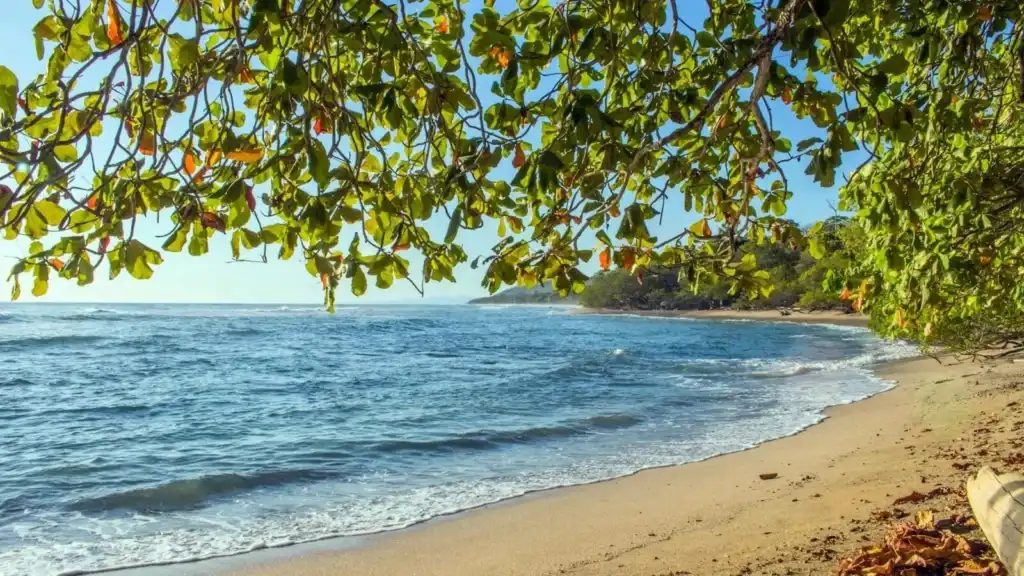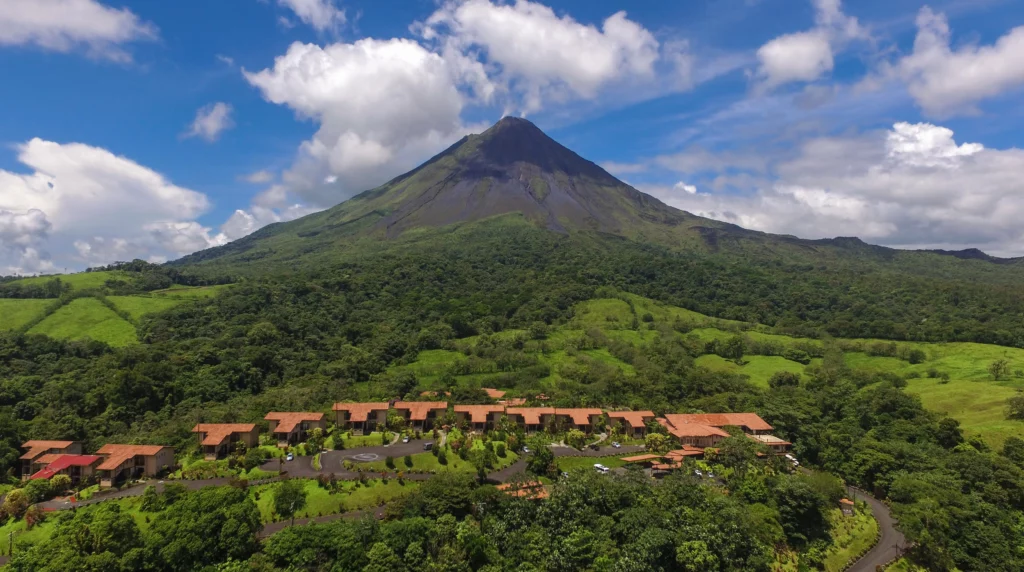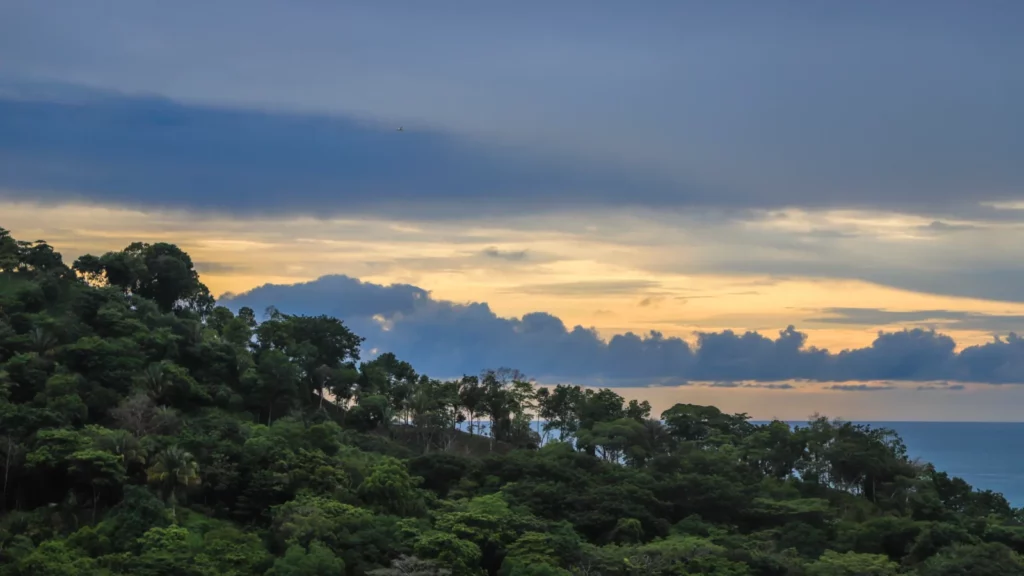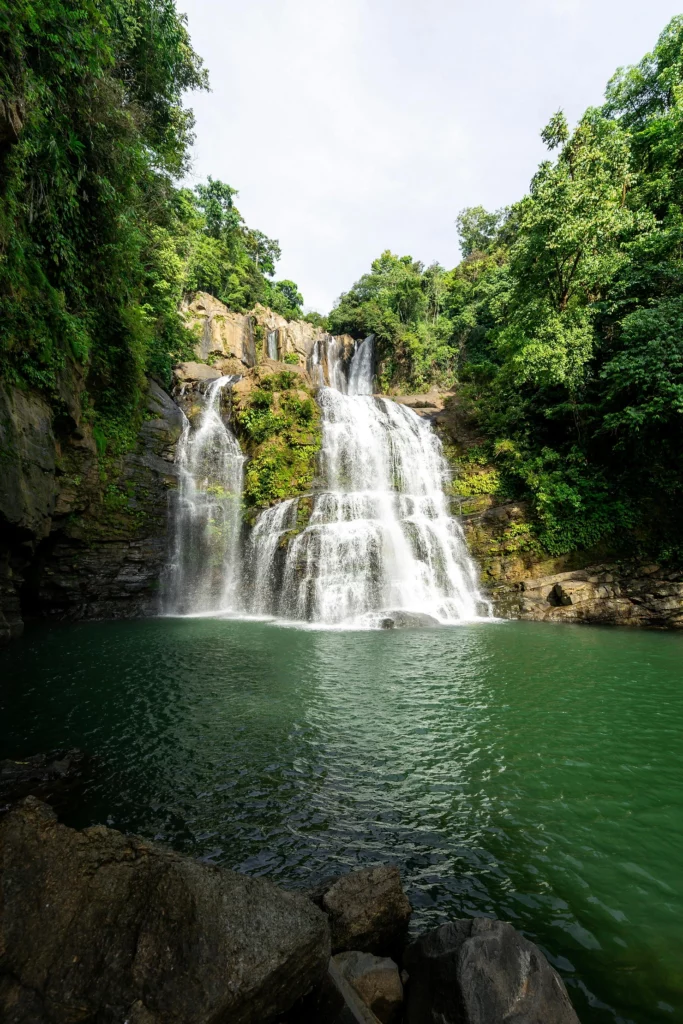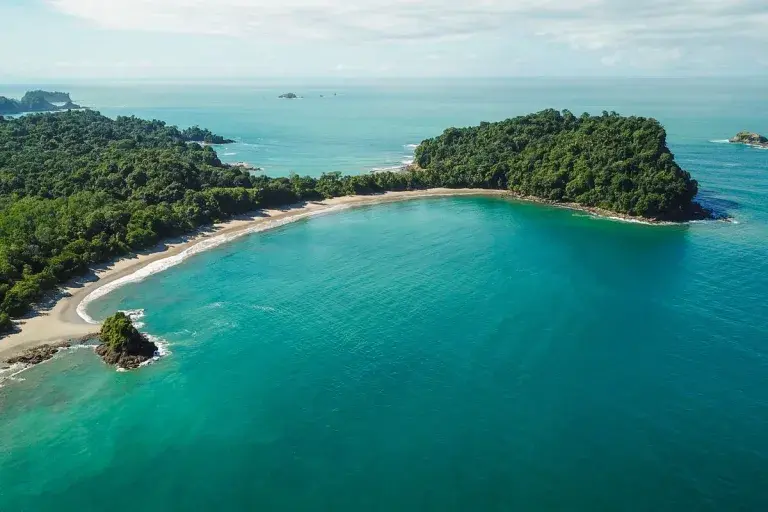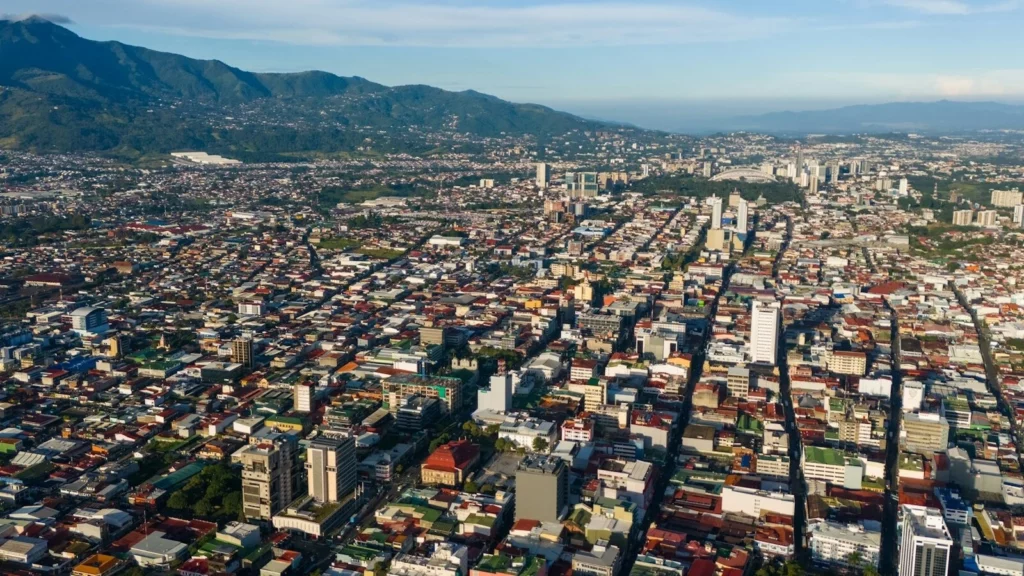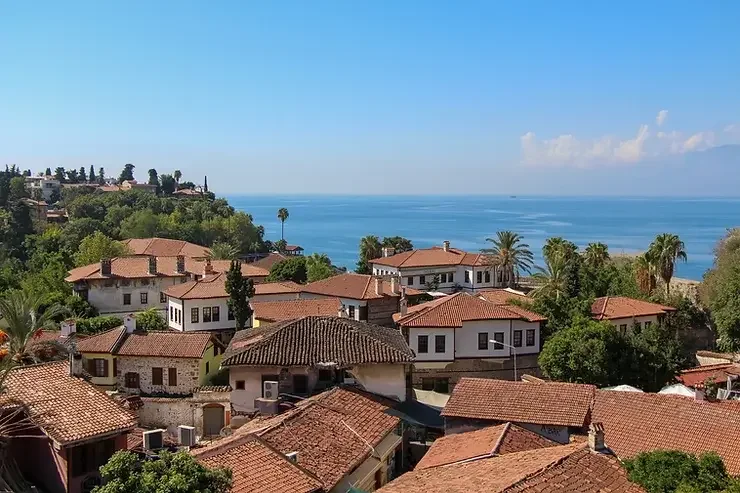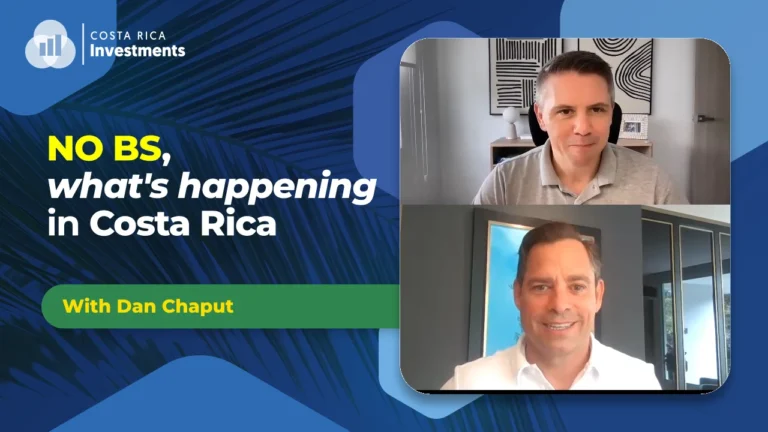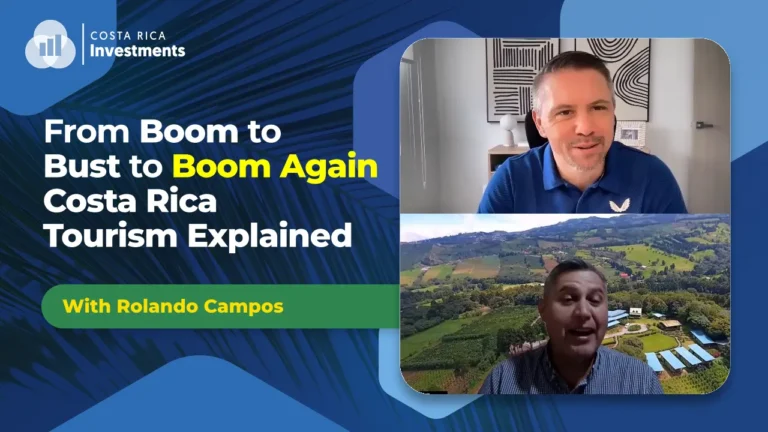Almost 70,000 Americans call Costa Rica home, and that number has grown by about 14% annually since 2020. This increase is no surprise: Costa Rica’s combination of natural beauty, political stability, and quality healthcare makes it an attractive destination for those seeking a tropical paradise to call home. However, behind the picturesque beaches and cloud forests lies a meticulous residency process that requires careful management.
Costa Rica offers multiple residency options, each with specific requirements for different life situations. Whether you plan to retire, work remotely, invest, or reunite with family, understanding these options will save you time, money, and stress during your transition to life in this Central American paradise.
This guide details everything you need to know about residency in Costa Rica in 2024—from application requirements and costs to timelines and common mistakes.
Residency Programs in Costa Rica: Choosing Your Path
Costa Rica’s immigration system offers several residency categories. Each option has different requirements, benefits, and limitations. Choosing the right program depends on your financial situation, age, and long-term goals.
Pensionado Residency: For Retirees with Stable Income
The Pensionado (Pensioner) program remains one of the most popular paths to Costa Rica residency, specifically designed for retirees.
Key Requirements:
- Proof of permanent monthly income of at least $1,000 from a pension, retirement fund, or Social Security
- Clean criminal record from your country of citizenship
- Valid passport with at least six months of validity
- Birth certificate with apostille
- Marriage certificate with apostille (if applicable)
Your pension income must come from a government source, company plan, or other guaranteed retirement fund. Social Security benefits qualify, but investment income generally doesn’t meet the criteria under this category.
Recent Changes: In 2023, Costa Rica streamlined the document verification process for pensioners from the United States, allowing for faster processing of Social Security verification letters.
The Pensionado program provides the security of residency without the obligation to work, making it ideal for those looking to enjoy retirement in Costa Rica’s relaxed atmosphere.
Rentista Residency: For Non-Retirees with Passive Income
The Rentista program serves those with steady passive income who aren’t yet retired.
Key Requirements:
- Proof of stable monthly income of at least $2,500 for two years, OR
- A bank deposit of $60,000 in a Costa Rican bank, from which you can withdraw $2,500 monthly
- Clean criminal record
- Valid passport with at least six months validity
- Birth certificate with apostille
- Marriage certificate with apostille (if applicable)
This residency option works well for younger individuals with significant passive income from investments, rental properties, or other steady sources. Unlike the Pensionado program, the income doesn’t need to come from a pension.
Banking verification tends to cause the most complications for Rentista applicants. Costa Rican authorities require proof that your income will continue consistently for at least two years, so documentation of the income source is crucial.
Inversionista (Investor) Residency
The Inversionista program targets those willing to make significant investments in Costa Rica.
Key Requirements:
- Minimum investment of $150,000 in a Costa Rican business, property, or government-approved project
- Business plan if investing in a new enterprise
- Proof that the investment benefits the Costa Rican economy
- Clean criminal record
- Valid passport with at least six months validity
- Birth certificate with apostille
- Marriage certificate with apostille (if applicable)
While real estate was traditionally the most common investment vehicle, recent years have seen growth in business investments, particularly in tourism, sustainable agriculture, and technology sectors.
The verification process includes thorough documentation of the source of investment funds and proof that the money has been transferred into Costa Rica through official banking channels.
Digital Nomad Visa: Remote Work in Paradise
Launched in 2021 and refined in 2023, the Digital Nomad visa offers a specialized option for remote workers.
Key Requirements:
- Proof of stable income of at least $3,000/month for individuals or $4,000/month for families
- Employment with a foreign company or clients outside Costa Rica
- Health insurance covering the entire stay in Costa Rica
- Clean criminal record
- Valid passport with at least six months validity
Major Benefits:
- No requirement to pay into the Costa Rican healthcare system (CAJA)
- Tax exemption on foreign-earned income
- Import exemption for basic work equipment
- Driver’s license from home country valid for entire stay
With a validity of one year and the option to extend for an additional year, this program creates a bridge for those who want to experience living in Costa Rica before committing to a more permanent residency option.
Other Residency Options (Marriage, Birth, Family Ties)
Costa Rica offers additional residency paths based on family connections:
Marriage to a Costa Rican Citizen
- Requires valid marriage certificate
- Must prove the marriage is genuine and not for immigration purposes
- Typically faster processing (4-6 months)
Parent of a Costa Rican Child
- Birth certificate showing parental relationship
- Proof of providing financial support to the child
- Proof of ongoing relationship with the child
First-Degree Relative of a Costa Rican
- Proof of relationship (birth certificates, legal documents)
- Family member must request the residency on your behalf
- Proof of financial dependency in some cases
These family-based options often have simpler documentation requirements but still require criminal background checks and valid identification.
Complete Costa Rica Residency Application Process
The residency application process involves several stages, each requiring attention to detail and patience.
Step 1: Document Collection and Authentication
Before arriving in Costa Rica, gather all required documents from your home country:
Essential Documents:
- Valid passport (with at least 6 months validity)
- Birth certificate
- Marriage/divorce certificates (if applicable)
- Criminal background check from each country you’ve lived in during the past 3 years
- Proof of income or financial means (specific to your residency category)
- Photos (passport size with white background)
Each document must go through authentication:
- Obtain the original document from the issuing agency
- Get the apostille certification (for countries part of the Hague Convention) or consular authentication
- Translate documents into Spanish by an official translator in Costa Rica
Common Errors:
- Using expired criminal background checks (valid for only 6 months)
- Forgetting to authenticate marriage certificates
- Using unofficial translations
- Submitting documents with name inconsistencies across different records
Create a document checklist specific to your residency category and verify each item multiple times. Missing documents can delay your application by months.
Step 2: Submitting Your Application in Costa Rica
Once your documents are ready, you’ll submit your application to Costa Rica’s immigration office (Dirección General de Migración y Extranjería, or DGME).
Application Process:
- Schedule an appointment through the DGME website
- Pay the application fee at Banco de Costa Rica (approximately $50)
- Bring all original documents and copies to your appointment
- Submit biometric data (fingerprints and photos)
- Receive your expediente (file) number for tracking purposes
Upon submission, you’ll receive a comprobante (receipt) that serves as proof of your pending application. This document, along with your passport, allows you to remain legally in Costa Rica while your application processes.
Important Note: As of late 2023, the DGME offices in San José experience significant appointment backlogs. Schedule your appointment at least 3-4 weeks in advance.
Step 3: Navigating the Waiting Period
After submission, your application enters the review phase, which typically takes 3-12 months depending on the residency category and current processing volumes.
During this period:
- You can legally stay in Costa Rica
- You must obtain a DIMEX card appointment (required to be legally employed)
- You receive a provisional approval or nachgeschobene
- You’ll need to enroll in the CAJA (Costa Rican healthcare system)
- You must remain in Costa Rica or request permission to leave
If you need to leave Costa Rica during this period, obtain an exit permit before departure. Without this permit, your application could be canceled automatically.
Current processing times as of March 2024:
- Pensionado: 8-12 months
- Rentista: 6-10 months
- Inversionista: 4-8 months
- Digital Nomad: 2-3 months
- Family-relation residency: 3-6 months
Key Takeaway: The approval process requires patience. Build this waiting period into your relocation plans. Many successful applicants recommend arriving on a tourist visa, submitting your application, then temporarily returning to your home country to handle affairs while the initial processing occurs.
True Costs of Costa Rica Residency
Understanding the full financial picture helps prevent budget surprises during your residency journey.
Government Fees and Official Expenses
Official costs vary slightly by residency category but generally include:
| Fee Type | Approximate Cost (USD) |
|---|---|
| Application Filing | $50 |
| Residency Approval | $100 |
| Document Certification | $30 per document |
| DIMEX Card Issuance | $123 |
| CAJA Monthly Premium | $60-300 (income-based) |
Total Official Costs: Expect to pay $400-600 in government fees alone, not including ongoing CAJA payments.
Recent fee increases implemented in January 2024 raised the DIMEX card cost by approximately 15%.
Additional Costs Most Applicants Overlook
The official fees represent only a portion of the total expense:
Attorney Fees:
- Basic application assistance: $600-1,200
- Comprehensive services including document management: $1,500-3,000
- Premium services with expediting: $3,000-5,000
Document Preparation:
- Apostille services: $50-100 per document
- Official translations: $30-60 per page
- Document shipping/courier: $100-200
Travel and Accommodation:
- Multiple trips to San José for appointments
- Potential costs if you need to return to your home country during processing
- Transportation to offices for fingerprinting, interviews, etc.
Miscellaneous Expenses:
- Bank fees for transferring funds
- Medical exam costs (required for some categories)
- Professional photos for applications
Real-World Example:
Tom and Linda, American retirees applying for Pensionado residency in 2023, shared their actual costs:
- Government fees: $482
- Attorney fees: $1,800
- Document preparation: $745
- Travel expenses for appointments: $620
- CAJA initial enrollment: $280
- Miscellaneous expenses: $350
- Total: $4,277
Annual Requirements to Maintain Residency
Once approved, ongoing costs include:
Mandatory Expenses:
- CAJA monthly payments (income-based, typically $60-300)
- Annual DIMEX card renewal ($123)
- Mandatory visit to Costa Rica at least once per year
- Transportation costs for renewals and check-ins
Optional but Recommended:
- Attorney assistance with renewals ($200-500)
- Tax preparation services for dual-country compliance
Key Takeaway: Budget $3,000-$4,500 annually to maintain your residency, depending on your healthcare costs and renewal needs.
Life After Approval: What to Expect as a Resident
Once your residency is approved, a new phase begins with both rights and responsibilities.
Legal Rights and Limitations of Residents
As a temporary resident, you gain significant rights but face certain restrictions:
Rights Include:
- Legal long-term stay in Costa Rica
- Access to the national healthcare system
- Ability to open bank accounts and sign contracts
- Property ownership rights (same as citizens)
- Access to local pricing for national parks and attractions
Limitations:
- Restricted work permissions (varies by residency type)
- Cannot vote in elections
- May need to request permission for extended travel outside Costa Rica
- Must maintain the conditions of your specific residency program
Work restrictions deserve special attention. Pensionados and Rentistas technically cannot work as employees in Costa Rica, though they can own businesses and receive investment income. Inversionista residents can work only within their investment business. Digital Nomad visa holders can work only for foreign companies.
Path to Permanent Residency and Citizenship
The residency journey typically follows this progression:
- Temporary Residency: Initial approval grants temporary status valid for 1-3 years
- Residency Renewal: Must renew before expiration (varies by category)
- Permanent Residency: Available after 3 years of temporary residency
- Citizenship: Possible after 7 years of residency, requires Spanish proficiency test and civics exam
To maintain your path toward permanent status:
- Renew your DIMEX card before expiration
- Remain enrolled and current with CAJA payments
- Visit Costa Rica at least once every year (if traveling abroad)
- Report any changes in income or status to immigration
Permanent residency removes many restrictions, including work limitations, and requires fewer renewals. Citizenship offers additional benefits, including the right to vote and hold a Costa Rican passport.
Tax Implications for New Residents
Tax considerations should factor into your residency planning:
Costa Rican Tax Obligations:
- Costa Rica taxes only income earned within Costa Rica
- Foreign-earned income generally remains untaxed
- Property tax rates are low (approximately 0.25% of assessed value)
- Sales tax of 13% applies to most purchases
US Tax Considerations (for American citizens):
- US citizens must file tax returns regardless of residence
- Foreign Earned Income Exclusion (FEIE) may exclude up to $120,000 (2024 amount)
- Foreign tax credits may prevent double taxation
- FBAR filing required for foreign accounts over $10,000
Banking and Financial Reporting:
- FATCA reporting requirements apply to US citizens
- Opening accounts may require additional documentation as a foreigner
- Some investment platforms restrict access to non-US residents
Key Takeaway: Consult with tax professionals familiar with both US and Costa Rican tax laws before making your move. Proper planning can save thousands in unnecessary taxes while ensuring compliance with all legal requirements.
Avoid These 5 Common Costa Rica Residency Mistakes
Learn from others’ experiences to make your residency process smoother.
Starting Without Complete Documentation
Documentation problems cause most residency delays. Avoid these common pitfalls:
Common Documentation Errors:
- Submitting criminal background checks older than 6 months
- Missing apostilles on critical documents
- Name inconsistencies across documents
- Inadequate financial proof for your chosen category
Solution: Create a detailed document checklist specific to your residency category. Have an attorney or experienced expat review your documents before submission. Always bring both originals and copies to appointments.
Pre-Application Checklist Resource: Association of Residents of Costa Rica (ARCR) provides members with comprehensive document checklists tailored to each residency category.
Misunderstanding Income Requirements
Financial qualification confusion creates serious problems for many applicants.
Common Misconceptions:
- Assuming investment income qualifies for Pensionado status
- Providing bank statements without proof of income source
- Using joint accounts without proper documentation
- Inadequate proof of income sustainability
Reality Check: Income requirements are strictly enforced. For Pensionado residency, only pension or Social Security income counts. For Rentista, you must prove the income will continue for at least two years.
Banking Considerations: Costa Rican authorities want to see consistency. Six months of statements showing regular deposits helps substantiate your application.
Attempting the Process Without Spanish Skills
While many Costa Ricans speak English, the official residency process operates primarily in Spanish.
Language Challenges:
- Government forms in Spanish only
- Official correspondence without translations
- Appointment scheduling systems in Spanish
- Asistencia limitada en inglés en las oficinas gubernamentales
Soluciones:
- Contratar a un abogado bilingüe para comunicaciones críticas
- Utilice aplicaciones de traducción para interacciones básicas
- Considere tomar clases de español antes de citas importantes
- Traiga un traductor a reuniones importantes
Incluso un vocabulario básico de español centrado en términos de inmigración mejora significativamente tu experiencia.
Pasando por alto los requisitos de atención médica
La inscripción a CAJA genera confusión para muchos nuevos residentes.
Datos de CAJA:
- La inscripción es obligatoria para todos los residentes, excepto los titulares de visas de nómada digital.
- Pagos mensuales basados en los ingresos declarados (normalmente entre el 7 % y el 11 % de los ingresos declarados)
- Proporciona cobertura de atención médica integral sin copagos.
- No se puede sustituir por un seguro privado (aunque puedes tener ambos)
Proceso de inscripción:
- Recibir la aprobación de residencia provisional
- Visita tu EBAIS local (clínica local) con tu documentación
- Formularios de registro completos y comprobante de domicilio
- Comience los pagos mensuales
Utilice la Calculadora CAJA del CCSS para estimar sus primas mensuales en función de sus ingresos declarados.
Cayendo en estafas de residencia y servicios sobrevalorados
La industria de la residencia incluye tanto profesionales con buena reputación como operadores sin escrúpulos.
Banderas rojas:
- Promesas de aprobaciones extremadamente rápidas
- Afirmaciones de “conexiones especiales” con la inmigración
- Solicitudes de grandes pagos en efectivo
- Sin oficina física ni credenciales verificables
- Tarifas inusualmente bajas (pueden indicar un servicio incompleto)
Encontrar ayuda legítima:
- Solicitar referencias de grupos de expatriados establecidos
- Consultar membresía en el Colegio de Abogados de Costa Rica
- Lea reseñas de múltiples fuentes
- Entreviste a posibles abogados sobre su proceso.
- Verificar la ubicación y las credenciales de las oficinas
Rangos de tarifas razonables:
- Asistencia básica para la solicitud: $600-1,200
- Servicios integrales: $1,500-3,000
- Paquetes premium de servicio completo: $3,000-5,000
Conclusión clave: La opción más económica rara vez ofrece la mejor relación calidad-precio. Concéntrese en la reputación, la experiencia con su categoría de residencia específica y una comunicación clara al seleccionar la asistencia.
